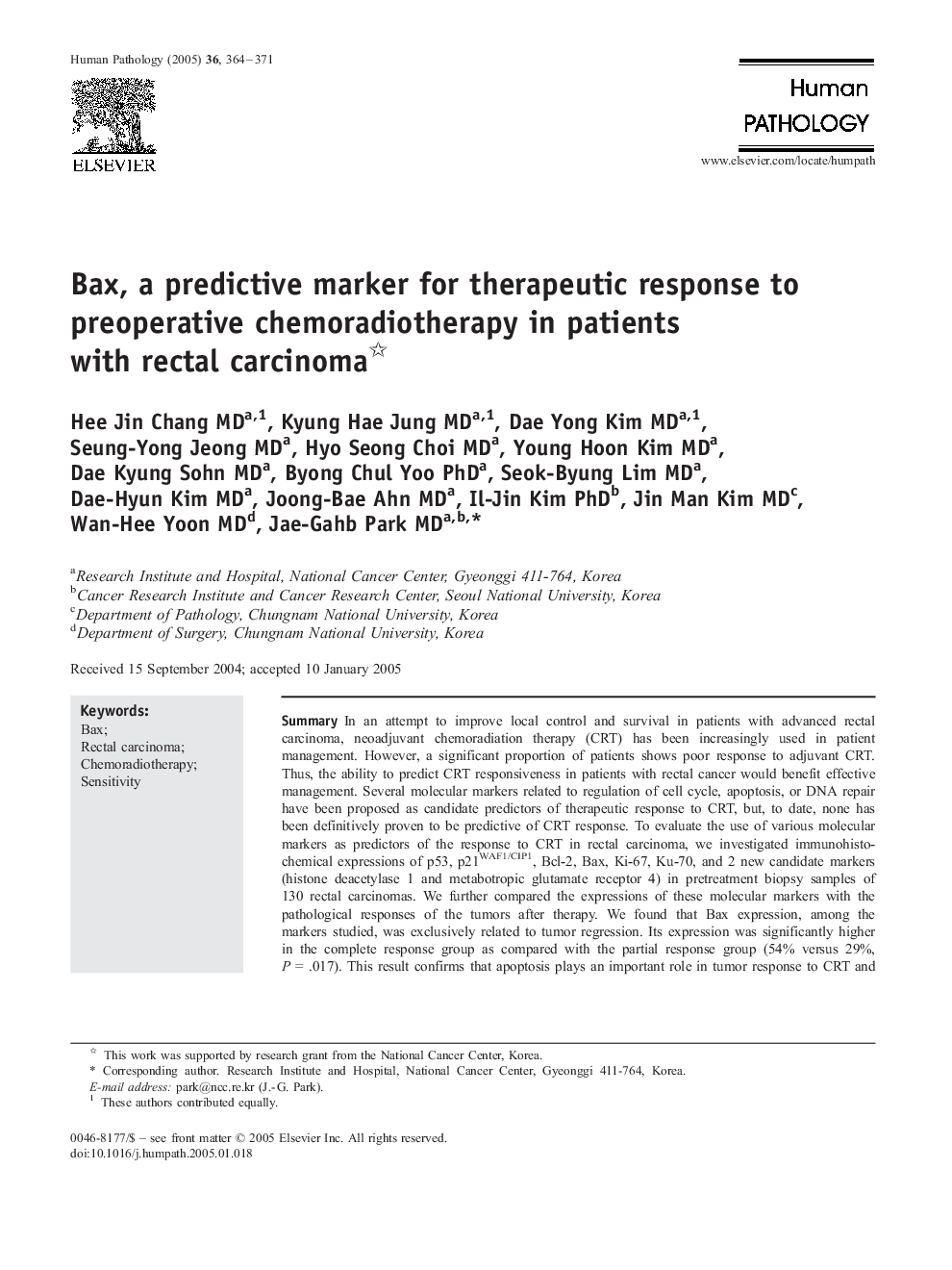| Article ID | Journal | Published Year | Pages | File Type |
|---|---|---|---|---|
| 9365761 | Human Pathology | 2005 | 8 Pages |
Abstract
In an attempt to improve local control and survival in patients with advanced rectal carcinoma, neoadjuvant chemoradiation therapy (CRT) has been increasingly used in patient management. However, a significant proportion of patients shows poor response to adjuvant CRT. Thus, the ability to predict CRT responsiveness in patients with rectal cancer would benefit effective management. Several molecular markers related to regulation of cell cycle, apoptosis, or DNA repair have been proposed as candidate predictors of therapeutic response to CRT, but, to date, none has been definitively proven to be predictive of CRT response. To evaluate the use of various molecular markers as predictors of the response to CRT in rectal carcinoma, we investigated immunohistochemical expressions of p53, p21WAF1/CIP1, Bcl-2, Bax, Ki-67, Ku-70, and 2 new candidate markers (histone deacetylase 1 and metabotropic glutamate receptor 4) in pretreatment biopsy samples of 130 rectal carcinomas. We further compared the expressions of these molecular markers with the pathological responses of the tumors after therapy. We found that Bax expression, among the markers studied, was exclusively related to tumor regression. Its expression was significantly higher in the complete response group as compared with the partial response group (54% versus 29%, P = .017). This result confirms that apoptosis plays an important role in tumor response to CRT and provides evidence that Bax may serve as a predictable molecular marker for chemoradiosensitivity in rectal carcinoma.
Related Topics
Health Sciences
Medicine and Dentistry
Pathology and Medical Technology
Authors
Hee Jin MD, Kyung Hae MD, Dae Yong MD, Seung-Yong MD, Hyo Seong MD, Young Hoon MD, Dae Kyung MD, Byong Chul PhD, Seok-Byung MD, Dae-Hyun MD, Joong-Bae MD, Il-Jin PhD, Jin Man MD, Wan-Hee MD, Jae-Gahb MD,
